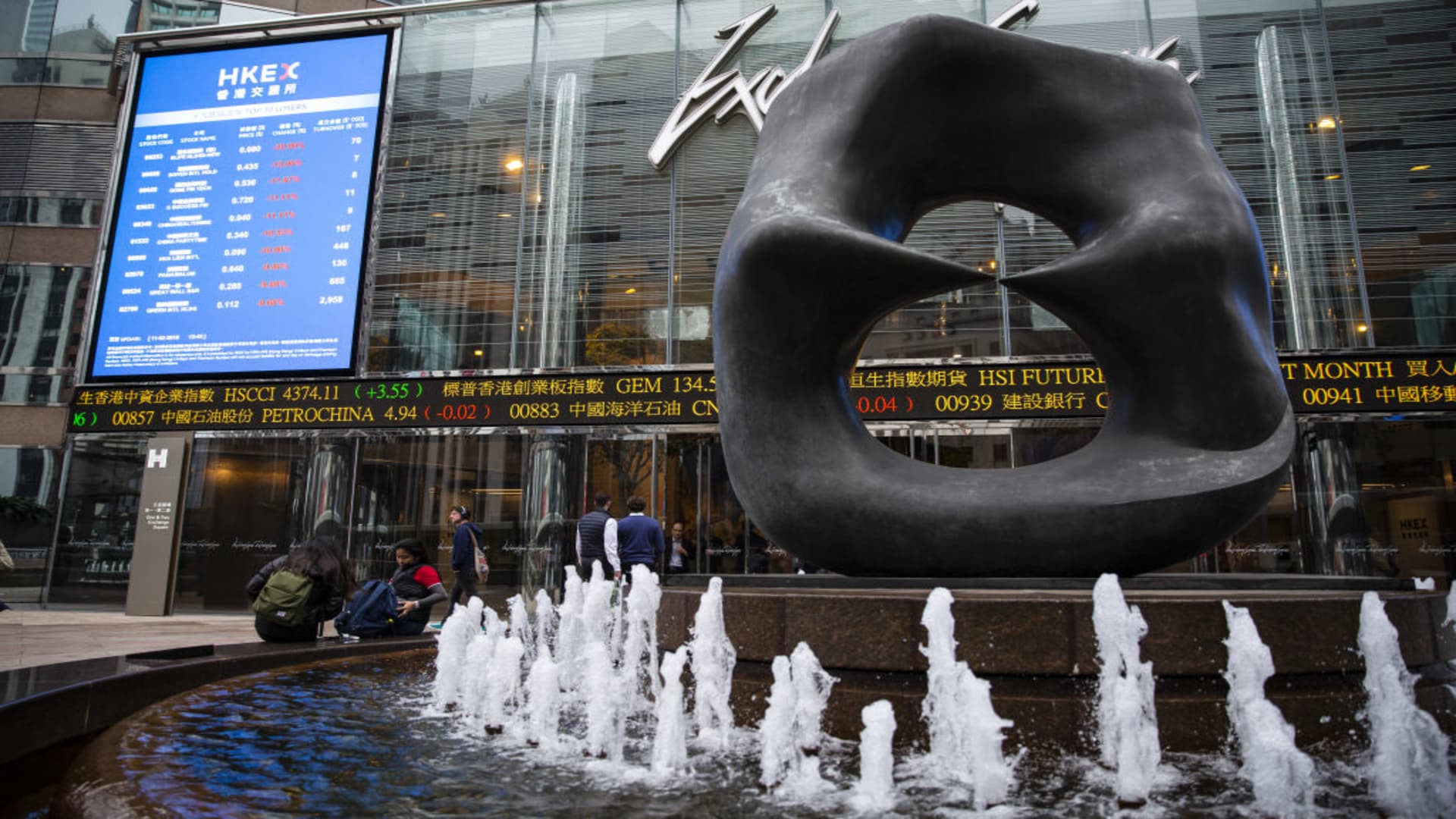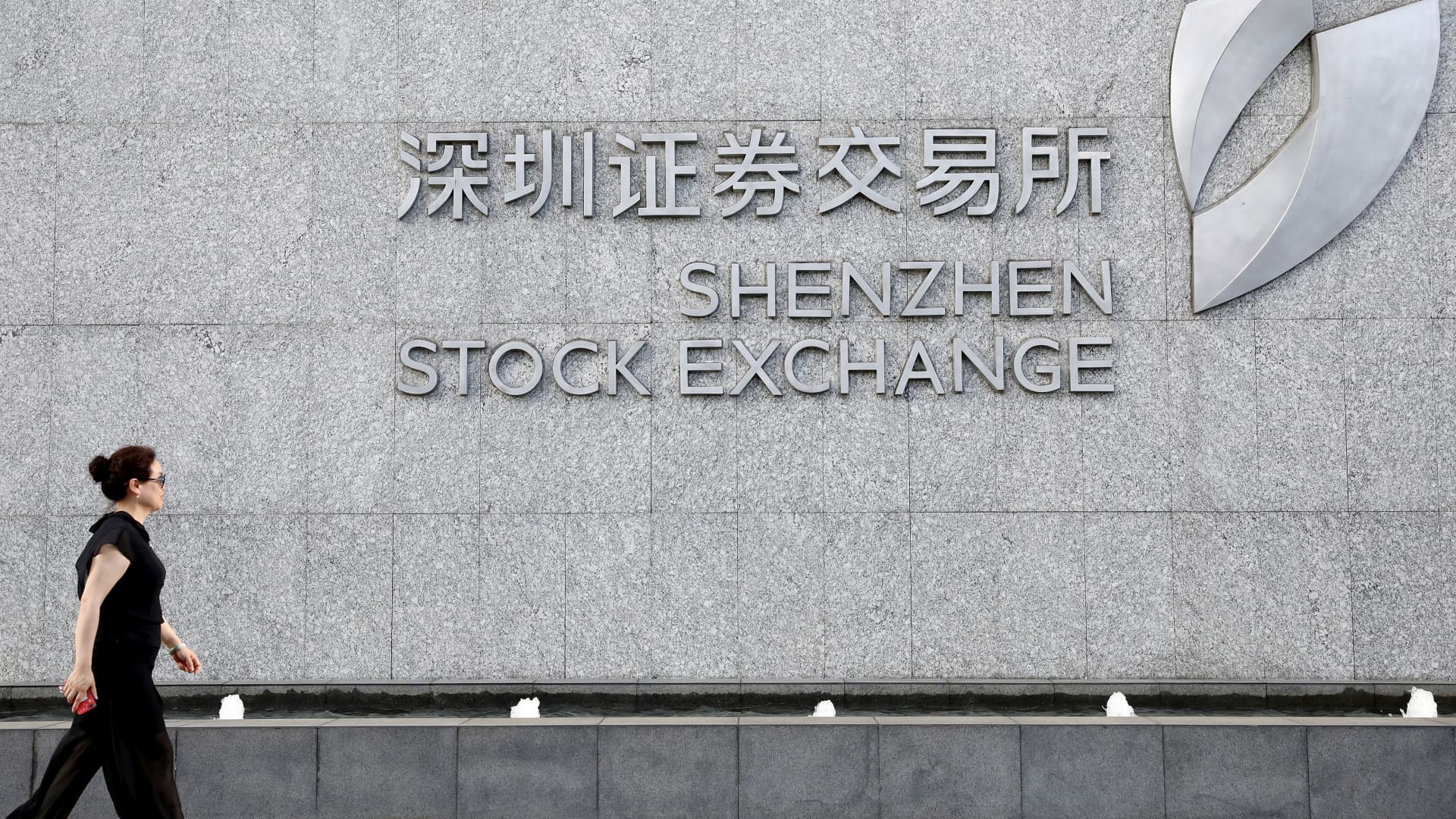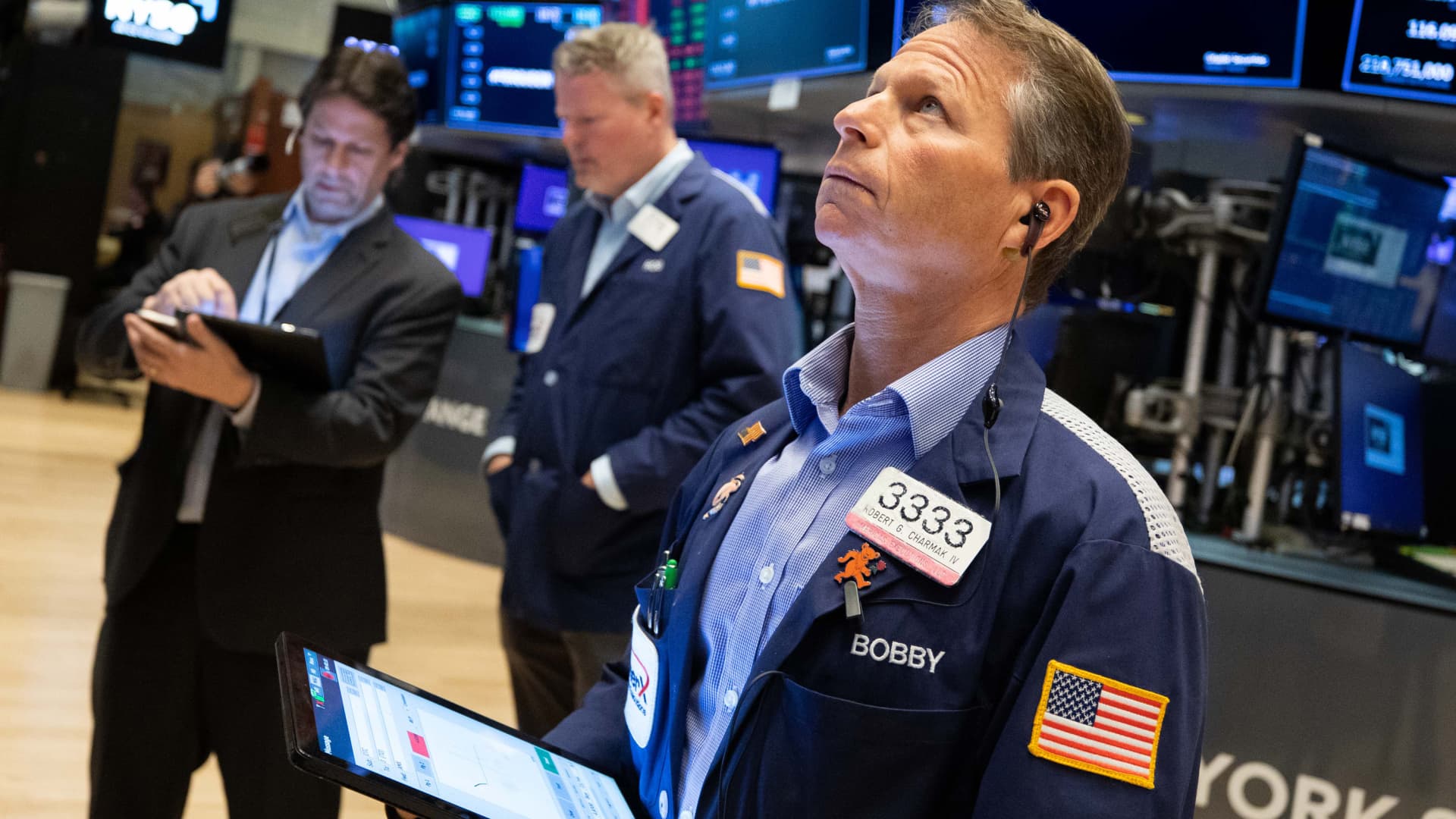Hong Kong's Hang Seng slips nearly 1% in mixed Asia trading day; oil jumps 4%
China's one-year loan prime rate was kept unchanged at 3.7% on Monday, largely in line with expectations from a Reuters survey.

SINGAPORE — Shares in Asia-Pacific were mixed on Monday as investors reacted to the release of China's latest benchmark lending rate, while oil prices surged 4%.
Hong Kong's Hang Seng index, which rose more than 1% in early trade, erased gains and closed 0.89% lower at 21,221.34. The city's benchmark index finished more than 4% higher last week following a volatile week which swung between big gains and losses.
Trading in the Hong Kong-listed shares of China Evergrande and its property services and new energy vehicle unit was halted on Monday, according to exchange notices. Evergrande said the trading halt was related to the pending release of an announcement containing inside information.
Meanwhile, Hong Kong-listed shares of Russia's Rusal dropped 5.4%. The firm said Monday it was evaluating the impact of a ban announced Sunday by the Australian government on exports of alumina and aluminum ores to Russia.
Mainland Chinese stocks, on the other hand, closed in positive territory. The Shanghai composite rose fractionally to 3,253.69 and the Shenzhen component advanced 0.414% to 12,379.64.
China's one-year loan prime rate was kept unchanged at 3.7% on Monday, largely in line with expectations from a Reuters survey.
Investors have been watching for hints of policy support from Beijing following a Chinese state media report last week that signaled support for Chinese stocks.
UBS Global Wealth Management's Eva Lee said policy easing measures by Chinese authorities — including one to two rounds of cuts in the reserve requirement ratio for banks — are expected ahead. She added the earliest of any actions may be in early April, based on past practices.
"We got to be patient on this, but we do believe that it's coming," Lee, head of Greater China equities at the firm's chief investment office, told CNBC's "Street Signs Asia" on Monday.
Stock picks and investing trends from CNBC Pro:
Elsewhere in the region, the S&P/ASX 200 in Australia dipped 0.22% on the day to 7,278.50 while South Korea's Kospi shed 0.77%, closing at 2,686.05.
Markets in Japan were closed on Monday for a holiday.
MSCI's broadest index of Asia-Pacific shares outside Japan slipped 0.72%.
Oil jumps around 4%
Oil prices were higher in the afternoon of Asia trading hours, with international benchmark Brent crude futures up 4% to $112.25 per barrel. U.S. crude futures climbed 4.1% to $108.99 per barrel.
The price of oil has been volatile since Russia's invasion of Ukraine, rising rapidly to highs not seen in 13 years before falling sharply. As of Monday afternoon Singapore time, Brent is up more than 40% for the year.
"Oil is high right now but ... if you look at what happened with Crimea in 2014 after the Russians invaded Ukraine and annexed Crimea initially oil prices were more than $100 a barrel but they eventually came down," Vasu Menon, executive director of investment strategy at OCBC Bank, told CNBC's "Squawk Box Asia" on Monday.
"We don't think prices will go back down to $20, $30 a barrel but ... they could ease back below the $100 mark in the coming months," he said.
Currencies
The U.S. dollar index, which tracks the greenback against a basket of its peers, was at 98.273 — off levels above 98.5 seen recently.
The Japanese yen traded at 119.22 per dollar following its weakening last week from levels below 118.2 against the greenback. The Australian dollar changed hands at $0.7395, as compared with levels below $0.721 seen last week.

 JaneWalter
JaneWalter 
































